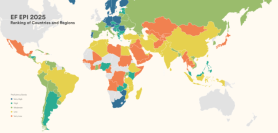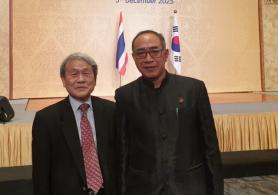
[This article was contributed by Arthur I. Cyr, author of "After the Cold War -- American Foreign Policy, Europe and Asia" (NYU Press and Palgrave/Macmillan). He has taught at the Universities of Chicago and Illinois, Northwestern University, and Carthage College (Clausen Distinguished Professor).]
KENOSHA -- North Korea has decided to bring in the New Year with a Bang, the Pyongyang regime over several days has fired sizable artillery barrages near a maritime buffer zone between North and South Korea.
Two years ago, in January 2022, the regime carried out four ballistic missile tests. Pyongyang described them as essential for self-defense. Other tests have followed, marking the end of hopes during the Trump administration that traditional tensions might be eased.
North Korea has possessed at least rudimentary nuclear weapons since 2006. From time to time, Pyongyang threatens to use them against South Korea, Japan and even the United States, though the distance involved makes that last target still relatively secure
In September 2021, Pyongyang announced successful launch of a cruise missile, an insidious weapon, flying low and difficult to detect with radar. An early version, the V-1 rocket of Nazi Germany, killed many people, overwhelmingly civilians, in Britain during World War II.
President Donald Trump gave priority to trying to improve relations with long-isolated North Korea. There were several meetings with North Korea leader Kim Jong Un, facilitated by then-President Moon Jae-in of South Korea, but they failed.
Meanwhile, South Korea continues on a positive course of exceptional economic growth and development, combined with now firmly established representative democracy.
As recently as the early 1960s, South Korea was one of the poorest economies in the world. Still a peasant society, the entire Korean peninsula was devastated by the Korean War of 1950-53. Yet today, the Republic of Korea ranks among the strongest economies in the world, holding leadership roles in the automobile, advanced electronics, shipbuilding and other industries.
Rapid industrialization and economic modernization have been complemented by striking transition from dictatorship to democracy. President and General Park Chung-hee stifled incipient democracy and imposed extremely harsh military authoritarianism for nearly two decades.
Park was assassinated in 1979 by the head of the KCIA, the national intelligence agency. In Korean memory, he remains a respected symbol of strength and effectiveness for many, though with progress and the passage of time that fades.
General Park was succeeded as chief executive by two more generals, Chun Doo Hwan and Roe Tae Woo, but growing pressure for true democratic representation proved insurmountable.
The capstone of transition to democracy was the election of Kim Dae-jung as president in 1998. He completed his five-year term without interruption, and in 2000 received the Nobel Peace Prize.
A public symbol of opposition to Park dictatorship, he was imprisoned for several years. On another occasion, KCIA agents kidnapped him and planned to kill him. Only the intervention of senior U.S. CIA official Don Gregg saved his life.
South Korea’s remarkable domestic accomplishments have unfolded while the country becomes increasingly influential in global arenas. In 2012, the Obama administration shrewdly nominated President Jim Yong Kim of Dartmouth College, who was born in Seoul Korea, as President of the World Bank.
The original vision of the United Nations combined competing goals of favoring the most powerful nations and inclusive global representation. Kim and former UN Secretary-General Ban Ki-moon personify South Korea’s significant expanding role as a bridge between developed and developing nations.
Market economies and reasonably representative governments now characterize a steadily increasing share of the world’s developing nations. In short, South Korea is positioned to lead developing nations toward prosperity.
Scare stories about actions of the North overshadow the good news regarding the South. This is most unfortunate.
Copyright ⓒ Aju Press All rights reserved.




